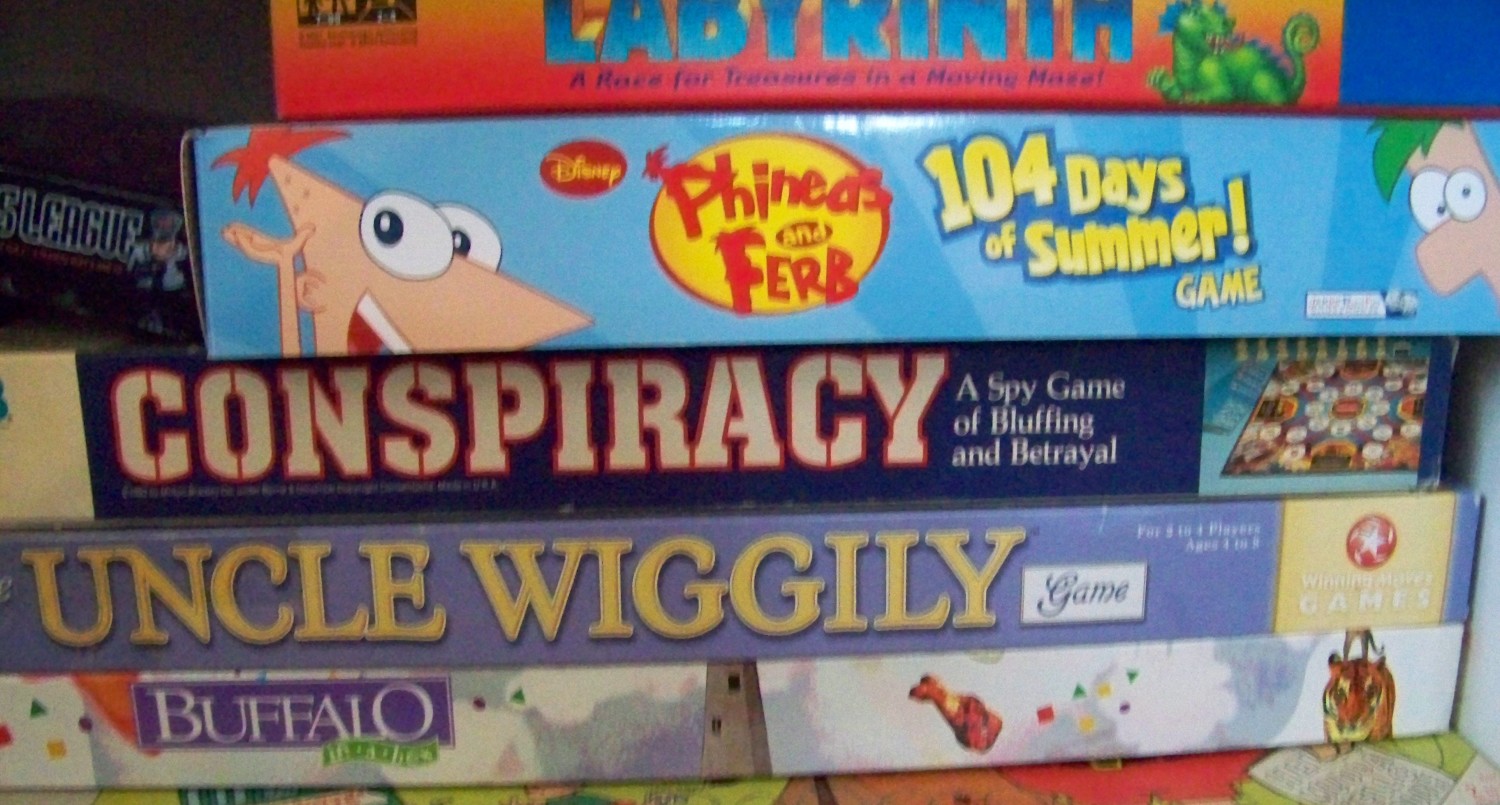On February 23rd, 2015, Ivan Staroversky (on staroversky.com) posted an article titled The Benefits Of Playing Board Games, which sort of got us. While it does list 7 benefits to playing board games as a second paragraph (including “Engage in activities that do not involve staring at a computer screen or a smartphone” and “Just have fun”), it spends the bulk of the article as a advertisement for games without really giving benefits. Sure, some of the games are novel or different from the Chess and Monopoly he decries as what people think of as board games, but what he terms new, aren’t necessarily (Settlers of Catan, for instance was first published in 1995).
I guess what I would have expected from a blog title like The Benefits Of Playing Board Games was something like these factual observations:
- A family’s sharing of leisure activities (including board games) helps to foster more cohesion and adaptability of the family as a group.1Zabriskie, Ramon B., and Bryan P. McCormick, “The Influences of Family Leisure Patterns on Perceptions of Family Functioning,” Family Relations 50(3), July 2001: 281-289.
- Playing board games may have beneficial effects at staving off dementia, cognitive decline, and depression in older people.2Dartigues JF, Foubert-Samier A, Le Goff M, et al., “Playing board games, cognitive decline and dementia: a French population-based cohort study,” BMJ Open 2013;3:e002998. doi:10.1136/bmjopen-2013-002998
- Board games can be just as useful as direct instruction in educating children about complex real-world situations/happenings.3Jeffrey L. Lennon, David W. Coombs, (2007) “The utility of a board game for dengue haemorrhagic fever health education”, Health Education, Vol. 107(3), pp.290 – 306
- Board games can teach skills in deductive logic.4Neller T, Markov Z, and Russell I. (2006) “Clue Deduction: Professor Plum Teaches Logic,” Proceedings of the 19th International FLAIRS Conference (FLAIRS-2006), Melbourne Beach, Florida, May 11-13, 2006, pp. 214-219.
- Playing board games with other people who function as role models can teach children how to be good winners and losers, not just in the games, but in life.5Gobet F, de Voogt A and Retschitzki J. (2004) Moves in mind: The psychology of board games. Psychology Press.
- A study has found that students who played/studied chess for only 1 hour per week outperformed in math testing against students who were receiving 4-5 hours of math instruction per week.6Scholz M., Niesch H., Steffen O., et al. (2008). “Impact of chess training on mathematics performance and concentration ability of children with learning disabilities.” Int. J. Spec. Educ. 23, 138–156
While I know that we enjoy the social benefits of the shared gaming experience with our friends as well as family (like the communal ‘suffering’ of all the players during the blizzard portion of the Blizzard of ’77 game our friends brought over to play), and that games can teach patience and prediction skills, these six benefits that I’ve posted have studies that back them up. That means that they are more than anecdotal or ‘feel good’ glurge, they’re empirical. You can feel safe sharing them, because the data is there.
We live in a great time of information exchange, and it’s a shame when people don’t take advantage of it, and sucker people in with a misleading title to an article or blog post.
References
| 1. | ↑ | Zabriskie, Ramon B., and Bryan P. McCormick, “The Influences of Family Leisure Patterns on Perceptions of Family Functioning,” Family Relations 50(3), July 2001: 281-289. |
| 2. | ↑ | Dartigues JF, Foubert-Samier A, Le Goff M, et al., “Playing board games, cognitive decline and dementia: a French population-based cohort study,” BMJ Open 2013;3:e002998. doi:10.1136/bmjopen-2013-002998 |
| 3. | ↑ | Jeffrey L. Lennon, David W. Coombs, (2007) “The utility of a board game for dengue haemorrhagic fever health education”, Health Education, Vol. 107(3), pp.290 – 306 |
| 4. | ↑ | Neller T, Markov Z, and Russell I. (2006) “Clue Deduction: Professor Plum Teaches Logic,” Proceedings of the 19th International FLAIRS Conference (FLAIRS-2006), Melbourne Beach, Florida, May 11-13, 2006, pp. 214-219. |
| 5. | ↑ | Gobet F, de Voogt A and Retschitzki J. (2004) Moves in mind: The psychology of board games. Psychology Press. |
| 6. | ↑ | Scholz M., Niesch H., Steffen O., et al. (2008). “Impact of chess training on mathematics performance and concentration ability of children with learning disabilities.” Int. J. Spec. Educ. 23, 138–156 |
